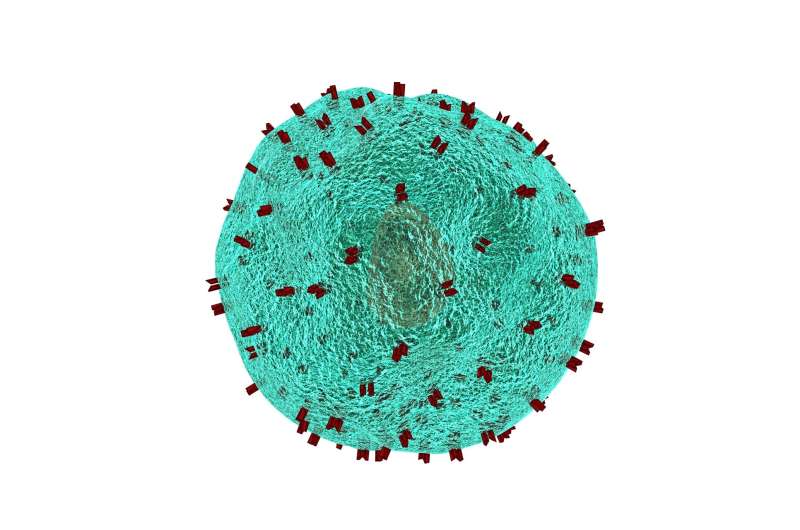Preliminary Success in Using CAR T-Cell Therapy for Refractory Systemic Lupus Erythematosus: A Five-Patient Feasibility Study

A feasibility study of in vivo CAR T-cell therapy in five patients with resistant systemic lupus erythematosus shows rapid B cell depletion and disease activity reduction, opening new therapeutic avenues.
Recent research from the First Affiliated Hospital of the University of Science and Technology of China has demonstrated promising short-term results using in vivo CD8 T-cell-targeted lipid nanoparticles carrying CD19 CAR mRNA (HN2301) to treat resistant systemic lupus erythematosus (SLE). In this feasibility study, five patients with SLE that did not respond to conventional therapies were enrolled. Most of them also had lupus nephritis. The therapy involved three doses of HN2301, with doses of 2 mg for the first two patients and 4 mg for the remaining three.
Following administration, CD8+ CAR T cells appeared in the bloodstream within six hours, peaking at six hours post-infusion before returning to baseline within two to three days. The CARs were predominantly expressed on CD8+ T cells, with minimal off-target expression on other T cells. Notably, circulating B cells showed rapid depletion, with near-complete elimination at higher doses sustained for 7 to 10 days. Importantly, no severe cytokine release syndrome or neurotoxicity was observed. Elevated levels of inflammatory markers, such as C-reactive protein and IL-6, were noted, and some patients received tocilizumab to manage cytokine effects.
Safety profiles appeared favorable, with only transient lymphocyte decreases and no significant liver enzyme or blood count abnormalities. Additionally, two patients showed substantial decreases in disease-specific autoantibodies, and complement levels normalized. At the three-month follow-up, all patients experienced reductions in disease activity scores, indicating decreased disease activity.
The authors conclude that in vivo CAR T-cell therapy can produce functional CD19 CAR T cells capable of depleting B cells and impacting disease markers in SLE. However, they emphasize the need for longer-term data to confirm durability and overall safety. This pioneering approach offers hope for more effective treatments for SLE, especially in cases resistant to existing therapies.
For more details, see the original publication in the New England Journal of Medicine: [DOI: 10.1056/nejmc2509522].
_source: https://medicalxpress.com/news/2025-10-patient-lupus-car-cell-feasibility.html
Stay Updated with Mia's Feed
Get the latest health & wellness insights delivered straight to your inbox.
Related Articles
Innovative Strategies to Prevent Domestic Violence Exposure Among Mothers and Children
Early prevention programs like the Nurse-Family Partnership can significantly reduce maternal exposure to intimate partner violence and improve child and family health outcomes. Learn how proactive strategies are shaping a safer future for vulnerable families.
Innovative Biobattery Offers New Hope for Drug-Free Cancer Treatment by Tumor Shrinkage
A novel biobattery developed by researchers at the University of Wollongong and Jilin University shows promise in shrinking tumors and enabling drug-free cancer immunotherapy using bioelectrochemical processes.
Genetic Research Identifies Subtypes of Common Blood Cancer
Research from Karolinska Institutet uncovers that follicular lymphoma comprises three distinct genetic subtypes, leading to improved diagnosis and personalized treatment options for blood cancer patients.



